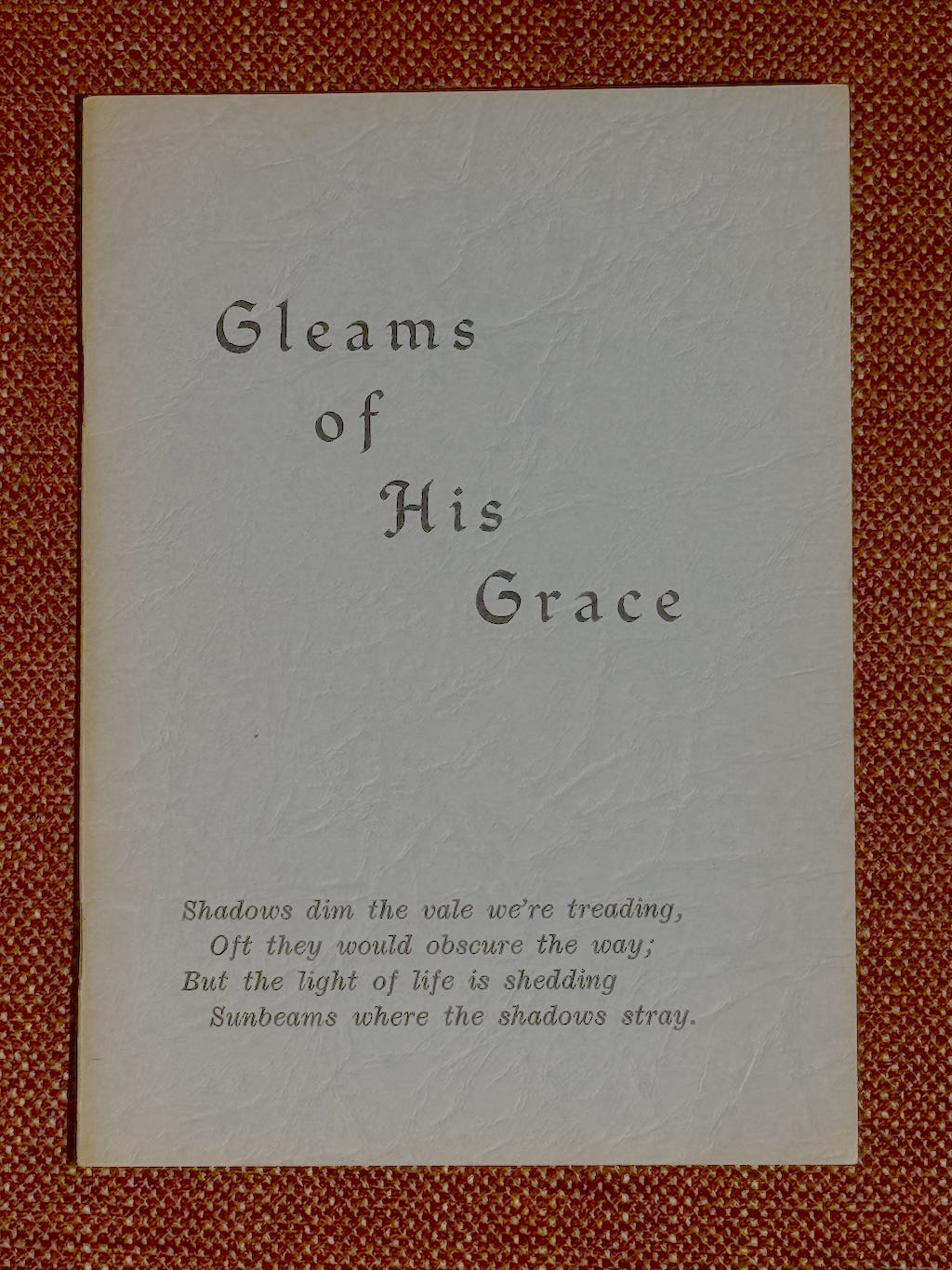"He Closed the Book"
My Granddad's poem that partly inspired today's homily
My granddad, about whom I have already written, was a devout Christian (he would have eschewed any further label, but others would have referred to the group to which he belonged as the “Exclusive Plymouth Brethren”) and one of the most generous and loving men I’ve known (along with his son, my father). He was also, despite having no formal education past Grade Three, a pretty good poet. (I think education was perhaps considerably more effective in his day.)
While his poetry is sometimes a bit too “devotional” for my taste, many of his poems have nevertheless (given my relationship with him) stuck with me and had a powerful influence on me, even when all I remember of them may be fragments. Such is the case with the poem that, in part, inspired today’s homily. In particular, with this one, I always remember the title, “He Closed the Book”, and the divine mercy that simple act conveyed.
Here is my granddad’s poem, in full.
“He Closed the Book”
He came to Nazareth. He had grown here, In wisdom and in stature, unto Man. 'Twas in accordance with the divine plan. For it was not the purpose of God That His Plant should spring in a favoured sod. As the Nazarene He was to be known. He grew in Nazareth that it might be shown That out of that vile place God could bring good: That we might better trace The sun-beams of His grace. Here Jesus stood (A Man among men) before them all. Into His hands—those blessed hands—He took Isaiah's roll, God's wondrous book! And found the place where he of old, Traversing avenues of time, foretold, With anointed vision, this day—this very hour! Then as He read the words they sprang to life—to power! Each form was forward bent, enthralled were they; And gazed with look intent, As He whom God had sent Began to lay His credentials, as it were, before them. The heavenly glory, His native soil, He had left for this sin-cursed earth, to toil Amid the sorrows of a hopeless race, To bring them hope, to lift them by His grace From the dungeons of despair. That the blind Might receive sight He had come, and to bind, To heal the broken heart. He'd come to tell God's love with winning art, In synagogue or mart, By desert well. As into, so from those lips grace was poured. It gilded every syllable and word. And by that grace their hearts were deeply stirred. But as He read the prophecy He chose To bring it in the middle to a close. The lingerings of God's mercy He'd fulfil, But close it on the vengeance part, until— Until man's heart despised love's overtures. For light divine—no eyes. Deceived by Satan's lies, Whose light allures! And now a different scene, and with Saint John We see a glorious, rainbow-circled throne! A book filled full of judgement, sealed, unknown. And not a creature found possessing worth To break those seven seals, in heaven or earth. At last amidst the throne the Lamb is found; His worthiness acclaimed with thunderous sound! He takes the book again, with hands nail-torn. Its seals He tears in twain! (Once mocked, reviled and slain By mortal's scorn). Now as the Lion of Judea's tribe— Revealing the portion that He left before Unread, in Nazareth's synagogue, when mercy's door Stood open wide, till man despised His love, And meted Him a cross—from heaven above, (Whose feet in meekness Nazareth's streets had trod), Directs the vengeance of Almighty God! Not yet, still mercy flows—its doors apart. Still He its depth who knows Is yearning to disclose God's loving heart. Can you neglect that pleading love to-day? The sands of mercy's year are all but spent. Who died for thee? 'Twas God, as man, who went To Calvary's cross, thy pardon to secure. But, grace despised, how long will God endure Man's ways? What! Abdicate His throne That wickedness might reign—the righteous groan? His judgment fierce is near. 'Tis but a day Till righteousness appear, And sorrow, sigh and tear Shall pass away.

.

